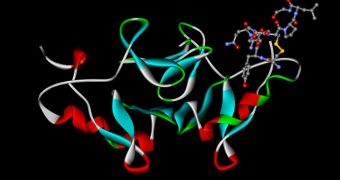One of the few things you can absolutely be certain about in this world is a sane mother's affection towards her child. There are little things mothers wouldn't do to protect their small ones, and keep them out of harm's way. The famous Greek philosopher Aristotle at one point argued that women tend to love their children more than their father do because they are more certain the youngsters are their own. But modern science has revealed the presence of a powerful chemical cocktail that actually underlies this type of complete devotion and affection, LiveScience reports.
The most important components of this chemical mix is without a doubt the hormone oxytocin, which has been found in previous studies to be underlying the entire interactions involved in human bonding. Though scientists know it plays a major role in the way we act, behave, and enter relationships with others, they admit that their knowledge of how the chemical actually affects the body is limited at best. The exact mechanisms and pathways that oxytocin follows to create its effects are still being heavily researched as we speak, but the work is bound to take some time before it's completed.
“We know that oxytocin facilitates child birth and lactation, and that has led some to investigate its role in attachment between mother and child, and in adult-adult pair bonds. It's pretty clear that the hormone oxytocin plays a role in bond formation in animals, but right now, we really know very little about the neurochemistry of bonding in humans,” states for Life’s Little Mysteries Jennifer Bartz. The expert holds an appointment as an assistant professor of psychiatry at the New York-based Mount Sinai Medical Center. She explains that one of the main avenues in oxytocin research is determining the influence that the hormone exerts on pregnant women, triggering the development of maternal feelings.
“It seems like one of the things oxytocin does is facilitate social memory. It helps us establish a preference for particular individuals,” the expert says. It may also be that the hormone is important for our ability to immediately recognize the people we like, as well as the ones we hate. A direct consequence is the fact that we strengthen our social bonds with those that are to our liking, while we also distance ourselves from people we can't stand.

 14 DAY TRIAL //
14 DAY TRIAL //